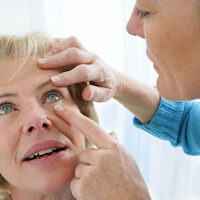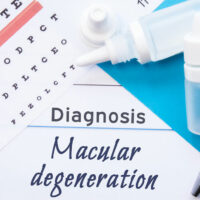12 common signs of a weak immune system

The immune system’s function is to protect the body from harmful substances and germs. It works to prevent different health disorders and infections. However, when the immune system weakens, one may experience several symptoms. This can happen due to poor nutrition, stress, aging, or health conditions. These symptoms are not always indicative of a weak immune system. Therefore, it is recommended to consult a primary care doctor whenever any of these are experienced.
Frequent infections
One of the primary signs of a weakened immune system is frequent infections. When the immune system loses its strength, it produces fewer white blood cells and antibodies, which are essential in battling pathogens that cause infectious diseases. A person with a deficiency of these substances becomes highly vulnerable to frequent infections, including sinus infections, colds, ear infections, and urinary tract infections.
Wounds that heal very slowly
Under healthy circumstances, an injury such as a cut, burn, or scrape makes the skin go into damage control mode. The body responds by sending blood that contains essential nutrients, white blood cells, and antibodies to the affected area, which kickstarts the healing process. As a result, new skin starts to regenerate. However, the healing rate depends on the immune cells’ health. If the immune system is weak, the functions of the body slow down, and the regeneration process can become sluggish, leading to delayed wound healing.
Chronic fatigue
If a person’s immune system is weak, they may experience chronic fatigue, which feels similar to the exhaustion caused by the flu. This may indicate that their body’s defenses are low. Symptoms include body pain and aches in muscles and joints, accompanied by a persistent feeling of exhaustion. Sometimes the fatigue is so severe that even basic daily activities become difficult. Rest or sleep may not alleviate the constant tiredness.
Frequent oral infections
The main function of the immune system is to fight off and kill bacteria that attack the body, including the mouth. When a person experiences recurring oral infections like gingivitis, canker sores, oral thrush, and periodontal disease, it may be a sign of a weakened immune system. These inflammatory diseases arise when there is an overgrowth of bacteria in the mouth, which the immune system is unable to fight off effectively, resulting in frequent infections.
Recurrent digestive issues
The gut is an important part of the digestive system that gets everything going. It works efficiently when there is a healthy number of good bacteria present. But, if the immune system is compromised, there is an imbalance in the number of good bacteria. So frequent stomach aches, diarrhea, gas, constipation, or other digestive problems become common complaints. The symptoms can last for more than a few days or even weeks.
Frequent allergies
When the immune system is compromised, it undergoes mild to drastic changes. Due to this, it is possible to be susceptible to frequent allergies. These can be triggered by dust, pollen, animal dander, certain chemicals in the air, and pollution. These symptoms may be new to most people and only occur when their immune system is compromised due to a health condition. As a result, they start experiencing allergic symptoms such as sneezing, nasal blockage, irritation in the throat and nose, headaches, and watery eyes.
Mild fever
If an individual is experiencing an elevated body temperature, it may indicate that the immune system is working harder than usual. This could be due to an impending infection or a potential flare-up of an autoimmune disorder.
Headaches
Headaches can sometimes be linked to the immune system. One possible cause is vasculitis, which occurs when a blood vessel becomes inflamed due to an infection or autoimmune disorder.
Onset of autoimmune diseases
Autoimmune diseases are immune system disorders. There are more than a hundred known autoimmune disorders. Some common ones include Crohn’s disease, lupus, ulcerative colitis, and rheumatoid arthritis. These conditions occur when the immune system either becomes abnormally low or hyperactive. This causes the body to mistakenly attack its own healthy tissues and blood cells, which can lead to serious damage. The onset of an autoimmune health disorder can be a sign of a weak immune system.
Slow recovery from any illness
The immune system produces immune cells. These cells have nutrients such as proteins and other substances such as white blood cells. These help the body recover from illnesses like flu, cold, infections, and other health issues. But, if the immune system is weak, the production of immune cells becomes slow. There is a deficiency in the production of white blood cells. Moreover, the essential nutrients are unable to flow through the body efficiently. As a result, the body is unable to get back to a healthy state quickly after any type of sickness.
Increased susceptibility to skin infections
Those who have a weak immune system may experience frequent skin infections. They become susceptible to infections caused by bacteria and parasites that cause itching and rashes. Some people also experience Behcet’s disease, dermatitis herpetiformis, dermatomyositis, and lichen planus. While these infections are rare under healthy circumstances, a compromised immune system cannot fight off these infection-causing pathogens.
Prominent hair loss
Immune cells released by the immune system play a vital role in the growth and regeneration of hair follicles. These cells contain protein, which is a key component of hair. If one’s immune system is weak or compromised, it can affect hair growth and lead to weaker hair follicles, causing hair loss. While it’s normal to lose about 100 strands of hair a day, excessive hair loss can be a cause for concern, especially if one finds clumps of hair in one’s hand. If one experiences sudden or significant hair loss that can’t be attributed to other factors, it may be related to a weakened immune system.





